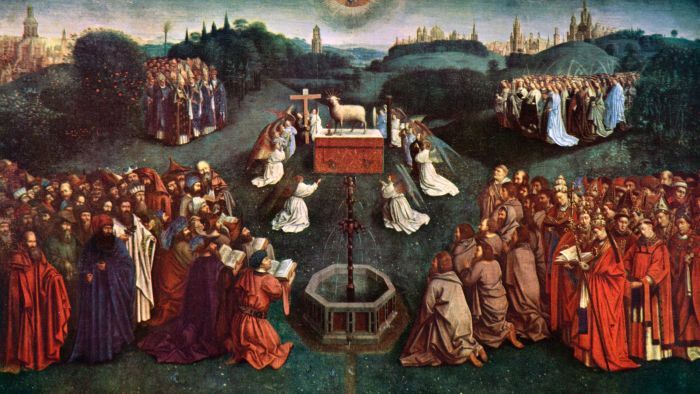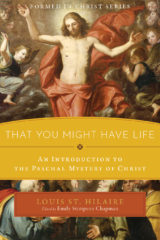By Louis St. Hilaire
Louis St. Hilaire is the author of That You Might Have Life: An Introduction to the Paschal Mystery of Christ and translator of The Literal Exposition of Isaiah: A Commentary by St. Thomas Aquinas (forthcoming from Emmaus Academic). A graduate of Franciscan University of Steubenville, he works as a web developer and digital editor for the St. Paul Center.

From all eternity, God has had a plan for your happiness. That’s what he wants for you: happiness, beatitude, and eternal joy. Every moment of your life, he is working in some way to lead you closer to that joy, which ultimately means closer to him, the source of all joy. He is doing the same for every person you know and don’t know. He wants every member of the human race to know eternal happiness. Despite our sin, despite our woundedness and brokenness and all the ways we fall short of who God made us to be, he still loves us and he still wants us in heaven with him.
God accomplishes this plan through his only begotten Son, Jesus Christ. Two thousand years ago God became man so that we could live forever. He took on human flesh and a human nature so that we could know who he is, how much he loves us, and what he wants for us. In Jesus, we see the fullness of divine Revelation.
In That You Might Have Life, take a closer look at the mission of Jesus Christ. Discover why God became man, how he prepared humanity to receive the gift of the Incarnation, how he set about fulfilling his mission during his life on earth, and how he brought about the culmination of that mission on the Cross. You’ll also discover how we’re called to participate in Christ’s mission. But in order to understand that, we need to look at salvation history as a whole, from the very beginning of creation.
As Catholics, we read the Old Testament as a single story—the story of God’s unfolding plan for the salvation of humanity, which is fulfilled in Jesus Christ in the New Testament. All the events of the Old Testament are significant because of what they tell us about God and because they are stages in his plan. The people of Israel were entrusted with the keeping of this story of God’s promise of salvation until the time of its fulfillment. To them, God promised a Messiah, who would save the people from their sins. God then reached out to the Israelites again and again when they went astray, and he fulfilled his promise by sending his Son, Jesus Christ.
In the Nicene Creed, we profess that Jesus came “for us men and our salvation,” and that he was crucified “for our sake.” Jesus’ mission is our salvation and his entire life is a mystery of redemption.
This mission culminates in the Paschal Mystery of his suffering, death, and Resurrection. Jesus “was put to death for our trespasses and raised for our justification” (Rom 4:25). The purpose of his death and Resurrection was to deliver us from our sins, make us holy, and restore us to friendship with God. Because of Jesus’ great love for us and his tremendous gift of himself on the Cross, we can live truly joyful lives once more—not just here on earth, but forever in heaven.
The Formed in Christ series is a solid and faithful resource that provides a thorough treatment of the Catholic faith and various branches of theology. Whether you're an armchair theologian wanting to fill in the gaps of your religious education or an educator who wants to implement a rigorous and orthodox curriculum, you'll find your answer in the Formed in Christ series.
You Might Also Like

The Formed in Christ series is a solid and faithful resource that provides a thorough treatment of the Catholic faith and the various branches of theology. That You Might Have Life: An Introduction to the Paschal Mystery of Christ takes us through creation, the Fall of Man, and Christ’s Paschal Mystery to the reader’s own life and what Christ’s redemption means for us.

